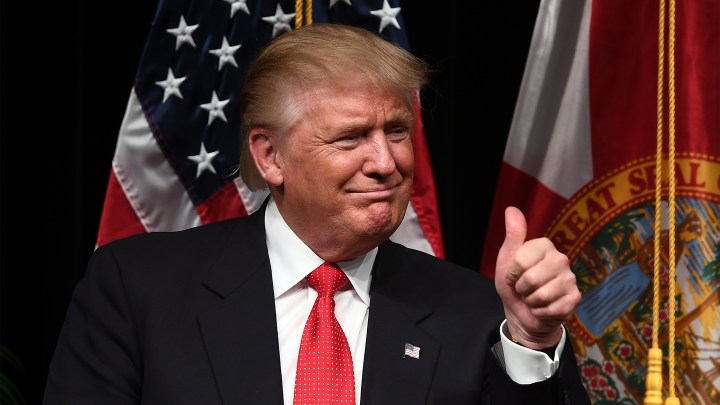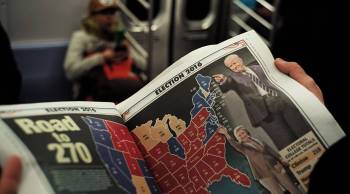
Republicans more upbeat on the economy than Democrats
Share Now on:
Republicans more upbeat on the economy than Democrats

A new survey by the Pew Research Center finds that Republicans at all income levels are more upbeat than Democrats about the current economy and their own personal financial situation. More than 3 in 4 upper- and middle-income Republicans (and independents who lean Republican) rate the economy as “excellent or good.” Even among lower-income Republicans, nearly 6 in 10 are upbeat about the current economy.
“We see that Republicans are more positive than Democrats about the current economy,” said Pew senior researcher Ruth Igielnik. “We know that has historically been the case — that partisan views of the economy are tied to whoever is in the White House.”
Among Democrats (and lean-Democrat independents), only a majority of those in the upper-income bracket call the economy “excellent or good.” A majority of middle- and lower-income Democrats view the current economy as “only fair or poor.” Seventy-five percent of Republicans overall say the economy is “excellent or good,” while 25% call it “only fair or poor.” Among Democrats overall, 59% say the economy’s “only fair or poor,” while 41% call it “excellent or good.”
In fact, high-income Democrats are about as upbeat on the economy as lower-income Republicans.

Within the parties, there are also attitude differences on the economy by income. Lower-income Republicans are about four times more likely than high-income Republicans to say the economy is “only fair or poor.” And nearly half (47%) of lower-income Republicans say the economy is hurting them and their families. Sixty-five percent of lower-income Democrats feel that way.
The survey also finds that a significant majority of Americans (69% of survey respondents) believe the current economy benefits the wealthy; a majority also believes that the current economy hurts the middle class, poor people, those without a college degree, older and younger adults. In general, Republicans are less likely to view the economy as hurting those groups than Democrats, while Democrats are more likely to say the economy is helping the wealthy.
Beyond party affiliation, views of the economy also differ by income. An overall majority of upper- and middle-income Americans (71% and 60%, respectively) say current economic conditions are “excellent or good.” An overall majority of lower-income adults (57%) say the economy is “only fair or poor.”

Financial anxiety is pervasive among lower- and middle-income Americans. Two-thirds (65%) of lower-income Americans worry “every or almost every day” about paying their bills, compared with about one-third (35%) of middle-income Americans and a small share (14%) of upper-income Americans. More than half (55%) of lower-income Americans worry almost daily about health care costs.
(Note: The Pew survey categorizes lower-income households as earning less than $40,100/year, middle-income as $40,100-$120,400/year, and upper-income as above that. Income is adjusted for survey respondents’ household size and local cost-of-living. The survey of 6,878 adults was conducted online from September 16-29, 2019.)
There’s a lot happening in the world. Through it all, Marketplace is here for you.
You rely on Marketplace to break down the world’s events and tell you how it affects you in a fact-based, approachable way. We rely on your financial support to keep making that possible.
Your donation today powers the independent journalism that you rely on. For just $5/month, you can help sustain Marketplace so we can keep reporting on the things that matter to you.


















